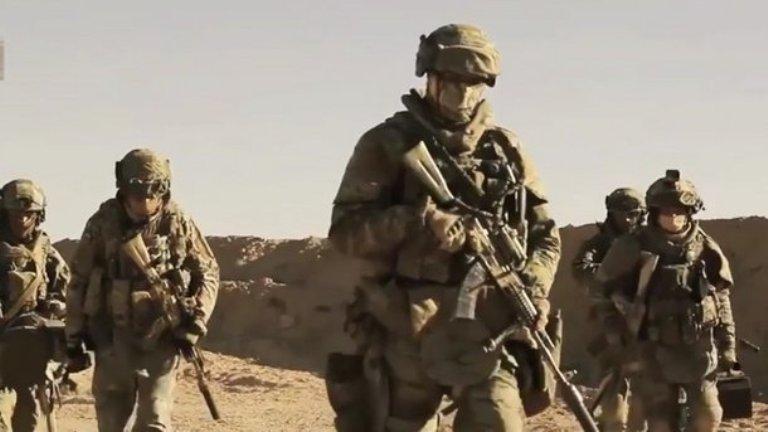Russian mercenaries evacuate from western Libya after Haftar losses
UN-recognized government forces have, with Turkish help, made sudden strides in recent weeks, seizing a string of towns, capturing the strategically important airbase, and destroying several Russian-made air defense systems.

Russian fighters in Libya were flown out to a town south of Tripoli by their eastern-based allies after retreating from front lines at the capital, Tripoli, according to a local official.
The reported departure of the Russians on Sunday was another blow to renegade eastern commander Khalifa Haftar's self-styled Libyan National Army (LNA) and his foreign allies, who have been trying to take the capital for more than a year from the UN-recognized Government of National Accord (GNA), Al Jazeera reports.
The Russian fighters allied to the LNA retreated with their heavy equipment from the capital to the airport of Bani Walid, a town some 150km southeast of Tripoli, said Salem Alaywan, Bani Walid's mayor.
He told Reuters news agency the Russians were then flown out of western Libya to Jufra, a remote central district and LNA stronghold.
"They [the Russians] were flown in three military planes to Jufra, and their military vehicles were driven there," he said.
LNA spokesman Ahmed Mismari denied any foreigners were fighting with his force.
But the presence of the Russian fighters has been widely documented by diplomats and journalists, and photographs purporting to show Russians in Bani Walid have been posted on social media.
According to a leaked United Nations report, Russian private military contractor Wagner Group deployed about 1,200 mercenaries to Libya to strengthen Haftar's forces. They have been identified by their equipment, typically reserved for Russia's armed forces.
UN monitors identified more than two dozen flights between Russia and eastern Libya from August 2018 to August 2019 by civilian aircraft "strongly linked to or owned by" Wagner Group or related companies.
Haftar's forces are backed by Russia, Egypt and the United Arab Emirates. The GNA is supported by Syrian fighters allied to Turkey, while Haftar is also using Sudanese fighters.
The GNA has, with Turkish help, made sudden strides in recent weeks, seizing a string of towns from the LNA, capturing the strategically important al-Watiya airbase, and destroying several Russian-made air defense systems.
"The withdrawal [of the Russians] from the greater Tripoli area is a very meaningful event because it deprives the LNA of its most effective, best-equipped foreign fighting forces on that key front," said Jalel Harchaoui, research fellow at the Clingendael Institute.
"Why they pulled out now is a subject of speculation, but you have to take into account that during the past week Turkey has really upgraded its aerial capabilities in Libya and has significantly weakened the strategic advantage that the Russian mercenaries provided," said Emad Badi, a senior fellow at the Atlantic Council with a research focus on Libya.
Badi said it was "obvious" that there was "some form of backdoor deal between Turkey and Libya in terms of allowing these mercenaries" to pull out.